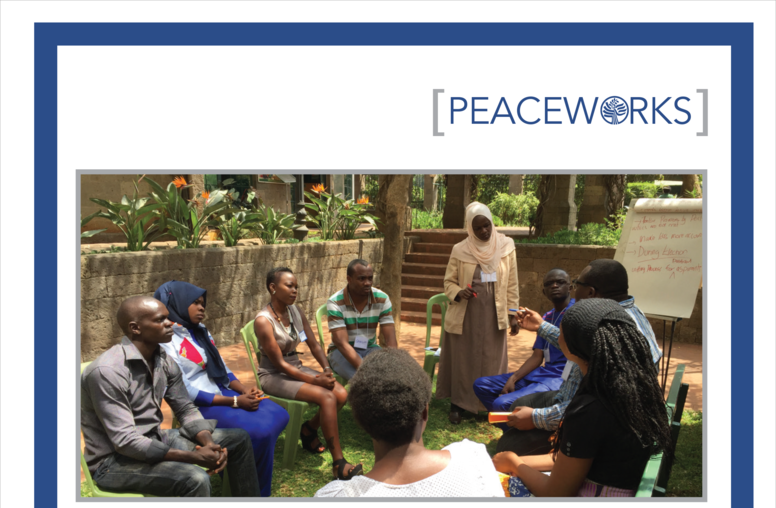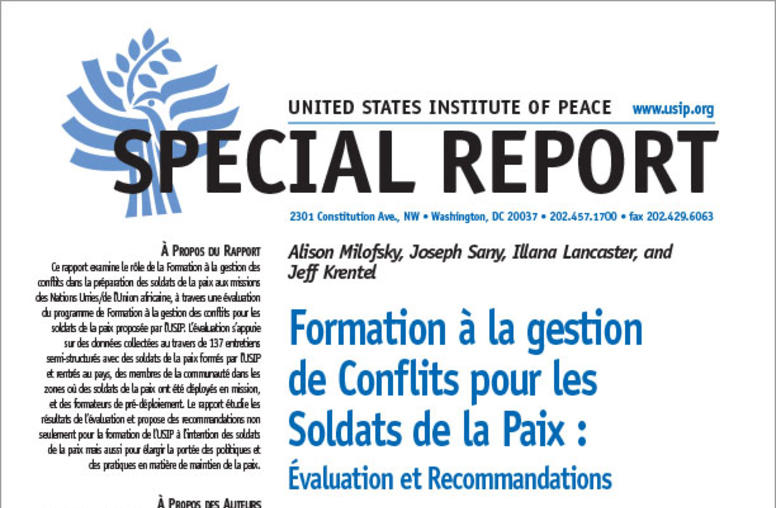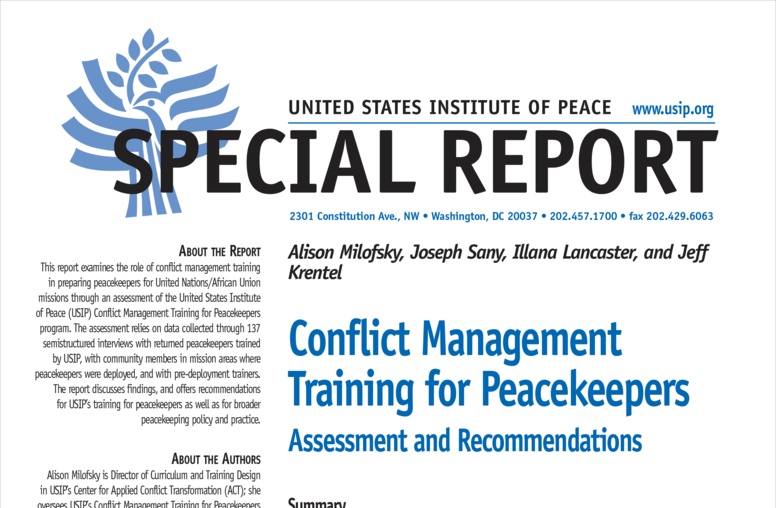Illana M. Lancaster, Ph.D.
Contact
Please submit all media inquiries to interviews@usip.org or call 202.429.3869.
For all other inquiries, please call 202.457.1700
Illana Lancaster is the director of higher education engagement in the civic engagement and scholarship program at USIP. Dr. Lancaster is an educator, trainer and researcher with over 25 years of experience in the field of comparative and international education and training policy and practice.
Dr. Lancaster joined the Institute in 2015 as senior program officer on the curriculum and training design team, where she led several initiatives and programs, including conflict management training for peacekeepers, security sector capacity development, educational institutional capacity development, and participatory action research for peacebuilding.
Prior to joining the Institute, Dr. Lancaster was an assistant professor in the international training and education program at American University. Her areas of specialization include curriculum and training design, professional development of educators and trainers, international education policy, participatory research, and justice, diversity, equity, and inclusion. Dr. Lancaster has a long-standing personal and professional interest in Africa and has been studying, learning, teaching, training and researching on the continent since the early 1990s.
Dr. Lancaster earned a bachelor's in African and African American studies and English literature from the University of Virginia, a master's in secondary education from George Washington University and a doctorate in international education policy from the University of Maryland at College Park. She has published on peacekeeping training, participatory approaches and education policy.


